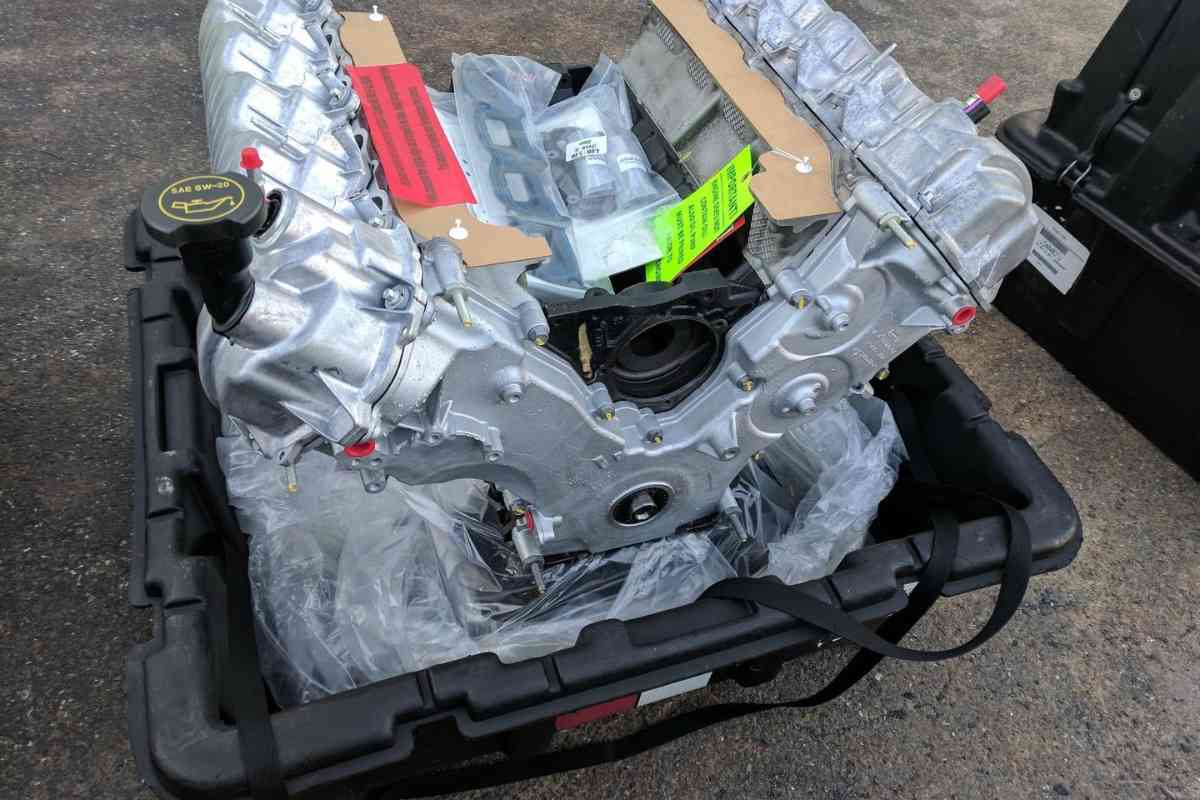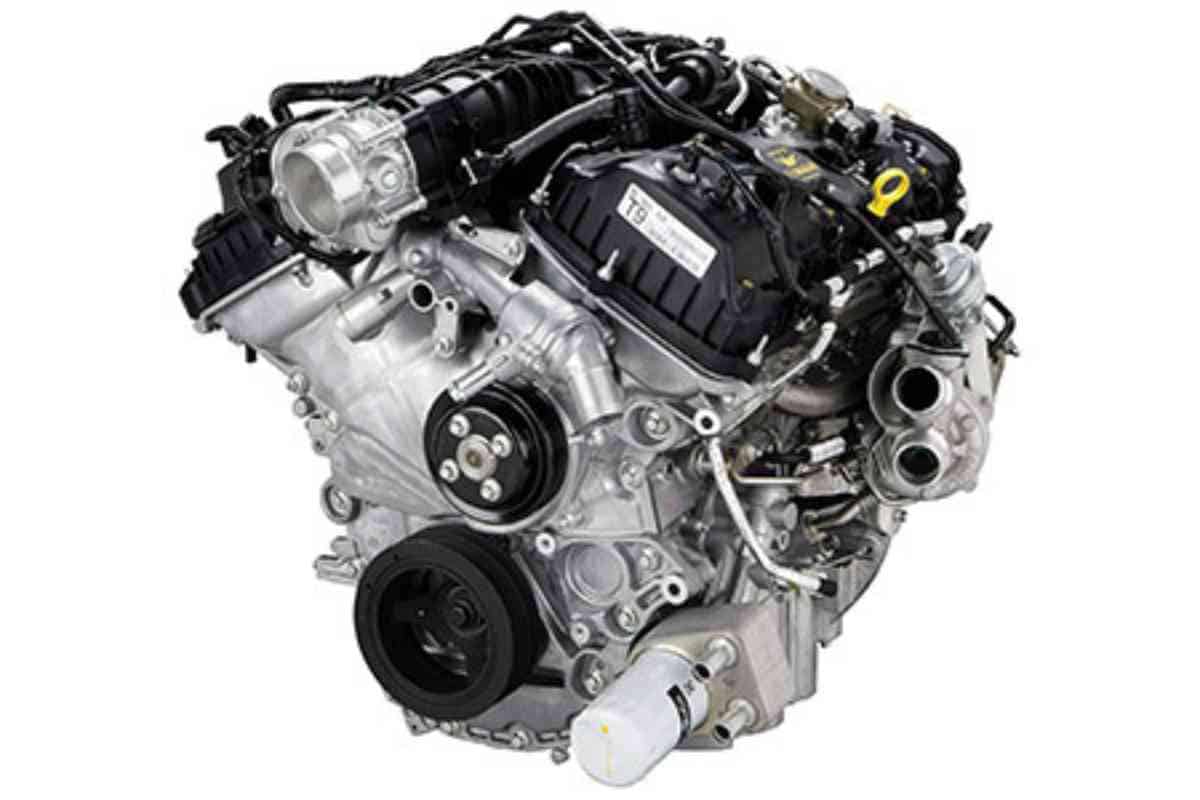The 4 F150 Engines You Should Avoid
With due reason, the Ford F-150 is the best-selling truck in North America. It’s versatile and rugged and has earned a reputation for durability for decades. Since it came out in 1948, Ford’s F-series became an icon and a standard for the American working family.
Over the years, the platform has come with an assortment of engines, many of which are reliable, but every now and then, some don’t live up to the hype. In fact, some F-150 powerplants are so unreliable that people avoid them altogether. This article will cover which engines have earned a bad reputation and why you should avoid them.

Which F150 engines should you avoid?
Avoid F150s with the 5.4L Triton V8 engine (made from 2004 to 2013), 3.7L V6 (2011 to 2014), 3.5L EcoBoost V6 (From 2015 to 2018), and the 5.0L V8 (From 2015 to 2018). These models are prone to spark plug failure and timing chain issues.
While the Ford F150 is an excellent truck, there are some engines that you should avoid. The reasons why are on this list, and it’s important to note that some of these powerplants are actually reliable; it’s just that they aren’t ideal for the working conditions that F150 faces.
At the same time, it’s also important to note that maintenance is vital. As you’ll see, some of these engines have what you can almost categorize as temperaments, and many mechanics hate them. Still, others are actually flawed when they face poor maintenance. So, whenever you’re looking for a used F150, remember to ask for detailed service records.
There’s one engine that you should definitely stay away from. You’ll hear about it from mechanics, read about it in forums, and if you’ve ever had one, you’ll know which one it is.
5.4L Triton V8 (From 2004 to 2013)
The Ford Triton V8 is a highly mainstream engine in many F150s from 2004 to 2013. It comes in a series of displacements, but the most troublesome is the 5.4L model.
When it runs smoothly and with proper maintenance, it delivers an excellent combination of horsepower and torque, hence its popularity. However, once it fails, repairs can get expensive. The most critical problems with the 5.4L Triton V8 are:

Spark plug failure
The spark plugs in this powerplant come with a casing prone to breaking when mechanics try to pull them out. If this happens, the spark plug gets stuck, and removing them can lead to an engine-out job.
The problem is that these spark plugs aren’t reliable, so it’s common for owners to report a drop in power and misfires. This problem can lead to an engine knock if left unattended due to the lack of proper spark ratios.
Looking for new spark plugs for your F150? We’ve got you covered, check out our guide!
Timing chain issues:
The Triton V8 has had timing chain issues, in which the guides tend to wear out quickly, leading the F150’s timing chain to rub metal against metal. This problem then causes loss of power and even engine failure.
Many mechanics don’t like working on the Triton V8 because tending to the timing chain means taking out major components. It’s so complicated that they prefer the engine-out approach, which is time-consuming and expensive.
There are so many F150s with this engine on the road that many companies have launched aftermarket parts to suit those needs. Some work wonderfully, and if you get one that hasn’t gone through these issues, it’s almost a given that you will have to replace these components with the improved versions.
3.7L V6 (From 2011 to 2014)
It’s important to clarify that this engine is reliable, so much so that it’s been in production for almost twenty years. However, that doesn’t mean it’s an ideal engine for the F-150. While the 3.7L V6 engine is popular with vehicles such as the Mustang and the Edge, it didn’t live up to the hype with the F-150.
This truck needs a powerplant for hard work, and the 3.7L V6 could never deliver in that sense. In addition, when submitted to hard work, this engine had trouble with the water pump, which can fail and even send coolant into the engine. This could lead to catastrophic failures.
That’s not the only problem this engine had. The 3.7L V6 has proprietary valve timing, which requires cam phasers. These can fail, which leads to power loss and rough running.
At the same time, it’s important to note that this engine has acceptable reliability when adequately maintained. However, it’s not ideal for a hard-working truck such as the F-150. In fact, the engine had a short stint with the F150, lasting only five full production years.
3.5L EcoBoost V6 (From 2015 to 2018)

The engine that replaced the 3.7L V6 is the 3.5 EcoBoost. At first, the F150 community was torn, as it was a smaller engine. Still, it could produce more power, thanks to its turbo setup and improved technology. Still, many were dubious of its ability to handle hard work.
While more durable than its predecessor, this engine has one problem that has plagued it from the start. The high-pressure fuel pump has been known to fail, rendering the truck useless. This pump has seen so many issues that Ford has had to issue several recalls.
Moreover, this engine doesn’t deliver better fuel performance than other power plants. So, it’s safe to say it isn’t a fan favorite. Ask for full-service records if you’re looking at an F-150 with this engine.
5.0L V8 (From 2015 to 2018)
This engine is another popular choice for later-year F150s, but it has its issues. The first one is that the engine lacks power compared to other models. Many drivers have complained that it doesn’t accelerate as fast as others, especially from standing still.
Additionally, the 5.0L V8 suffers from head gasket oil leaks, which can be traced back to a factory defect. The problem was so widespread that Ford had to issue recalls to fix it by redesigning several components.
Oil can leak into the starter motor, which causes critical engine damage. Also, suppose you leave this issue unattended. In that case, you might run into permanent head gasket failure and possibly have to replace the engine. Both of these problems don’t sound fun at all.
Comparison Chart
Table comparing F150 engine models:
| Engine Model | Years | Key Issues | Pros | Cons |
| 5.4L Triton V8 | 2004-2013 | Spark plug failure, Timing chain issues | Good horsepower and torque when running smoothly | Expensive repairs, complex maintenance |
| 3.7L V6 | 2011-2014 | Water pump failure, Cam phaser failure | Reliable when maintained, good for daily driving | Not ideal for hard work, short stint in F150 production |
| 3.5L EcoBoost V6 | 2015-2018 | High-pressure fuel pump failure | Turbocharged for more power, improved technology | Poor fuel performance, high-pressure fuel pump issues |
| 5.0L V8 | 2015-2018 | Head gasket oil leaks | Popular choice, good power when running smoothly | Lacks power compared to other models, head gasket oil leak issues |
Closing thoughts
The Ford F150 is extremely popular, and owners love it. It’s rugged and can take a beating, as it has done so for five decades, but some generations come with many problems. This article looks at the F150 engines you should avoid and why they’re troublesome.
At the same time, it’s important to note that these engines, like any, need proper maintenance to reduce the chance of failure. Some of these are pretty temperamental, and both owners and mechanics tend to stay away from them.
Always ask for detailed service records if you’re looking for a used F150. These can give more confidence in knowing that the truck has been taken care of, but don’t be too trusty. As soon as you buy one, sometimes it’s best to replace the faulty components, which are well-known throughout, which lead to costly repairs and plenty of headaches.
